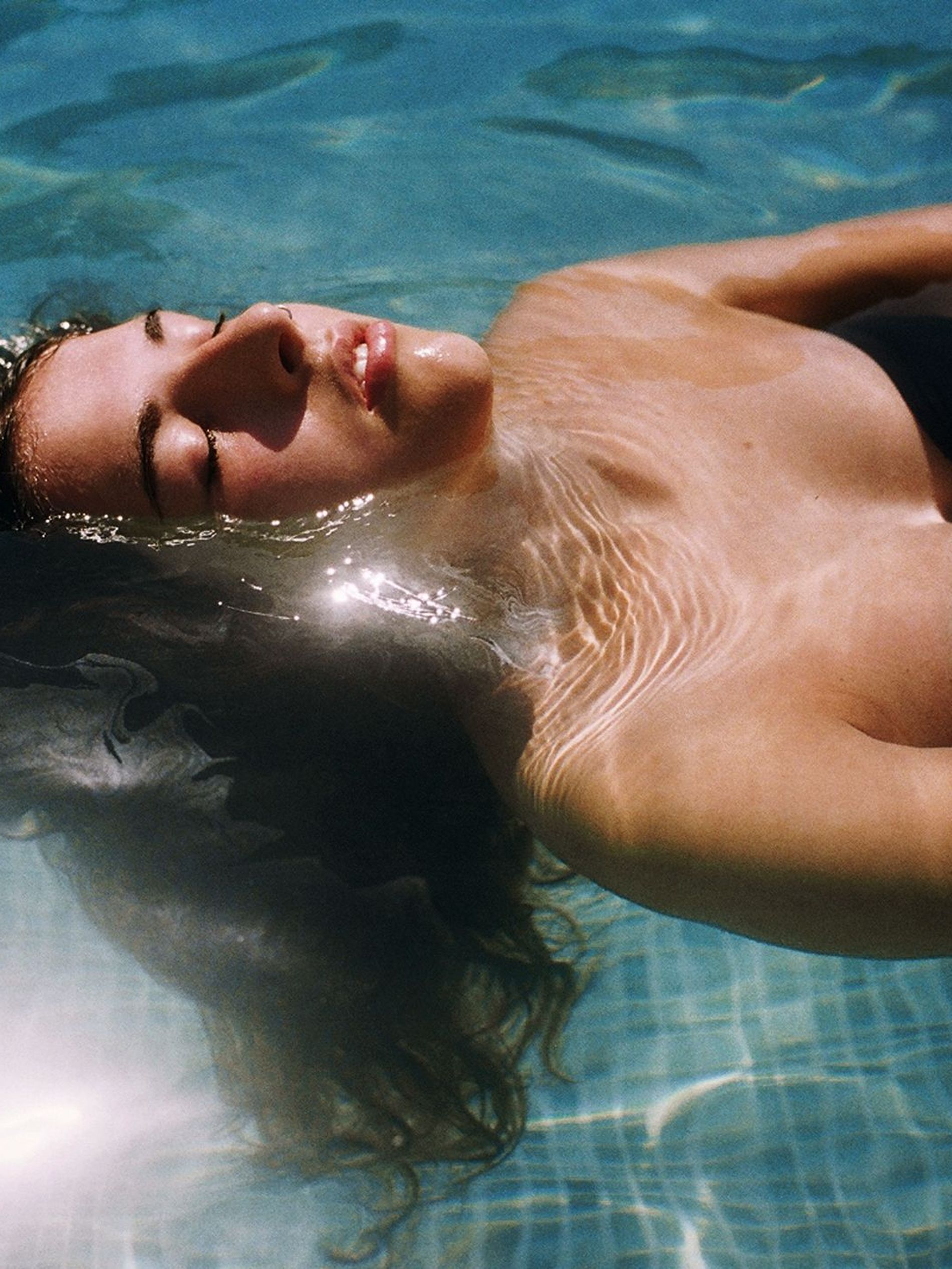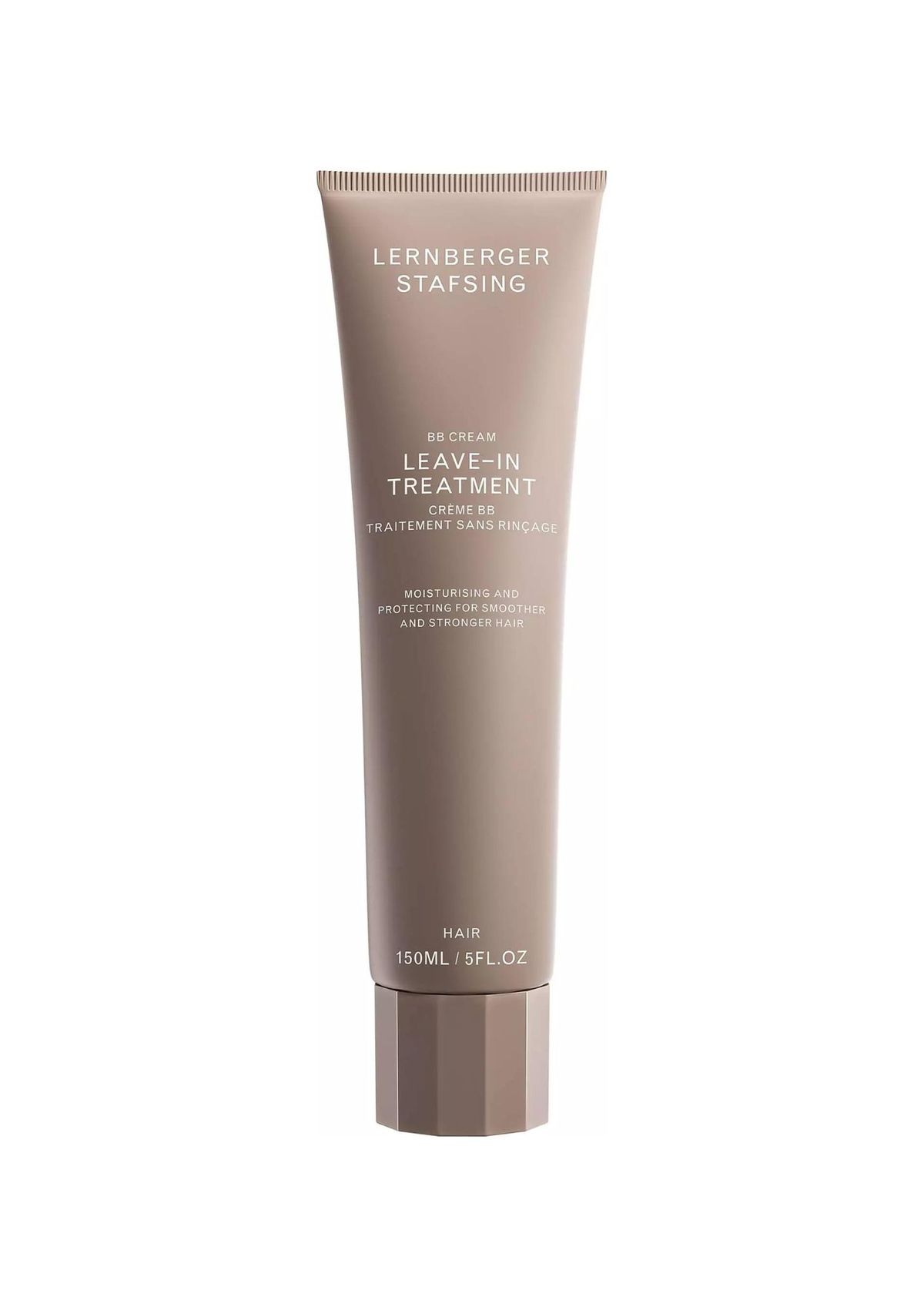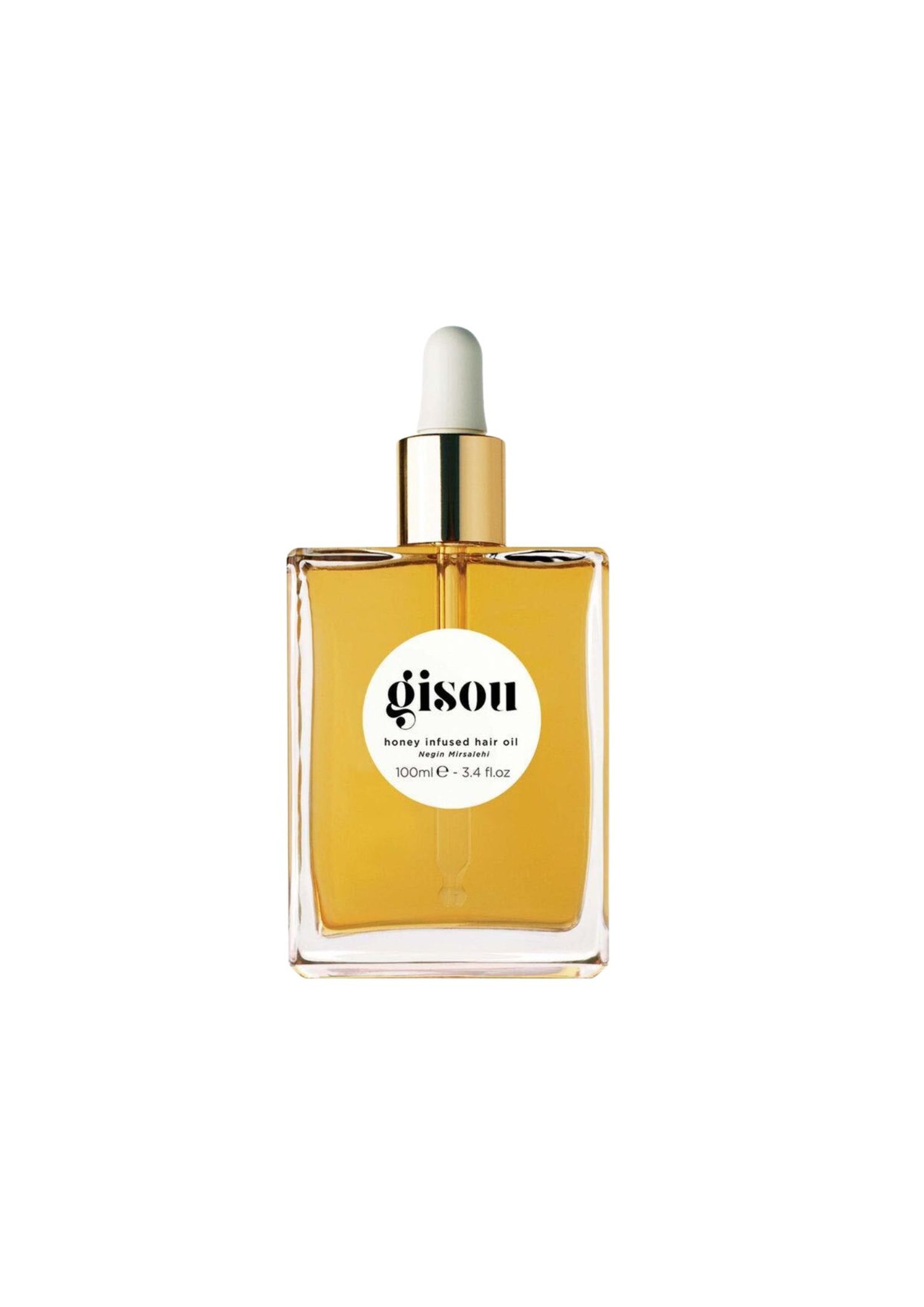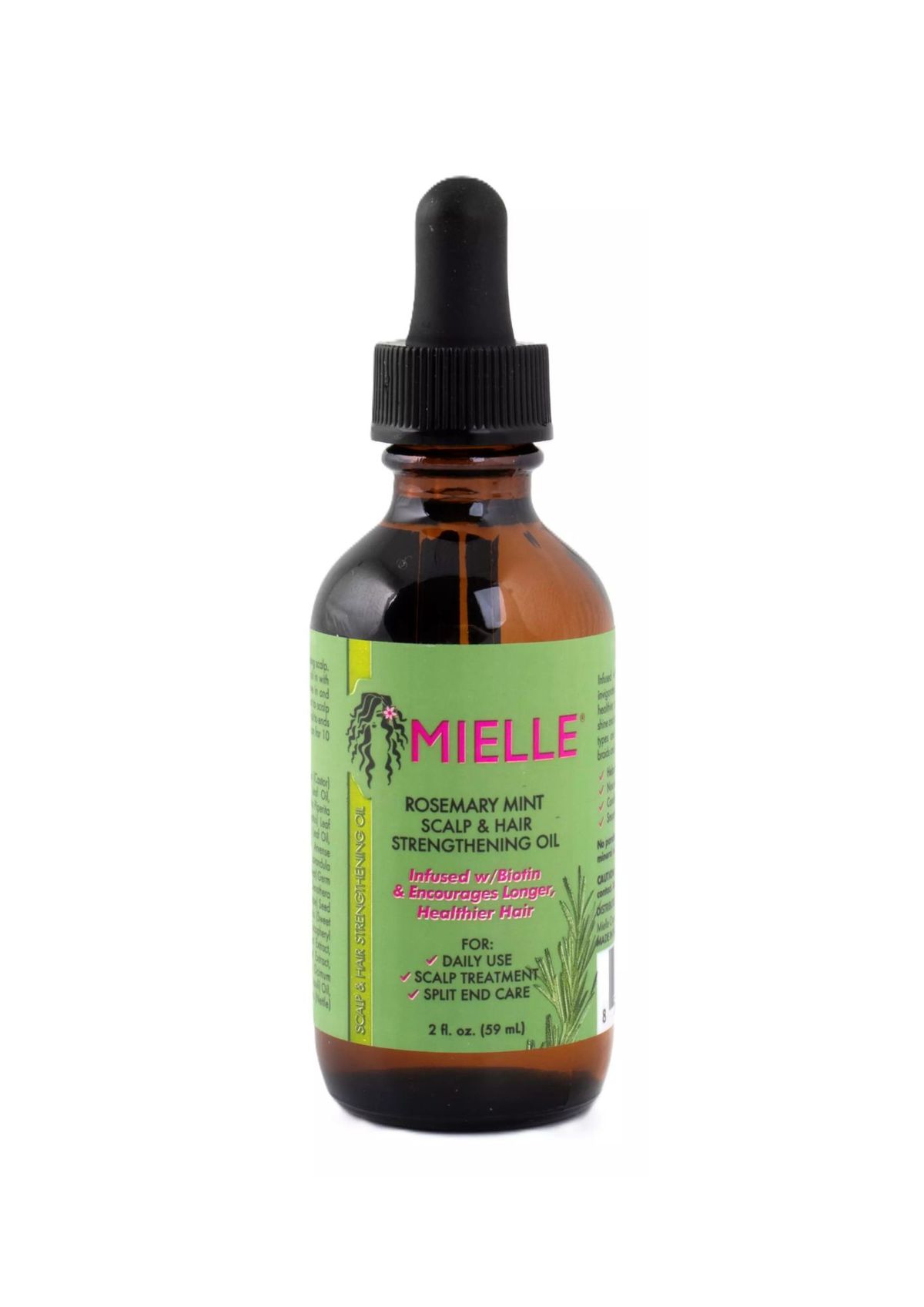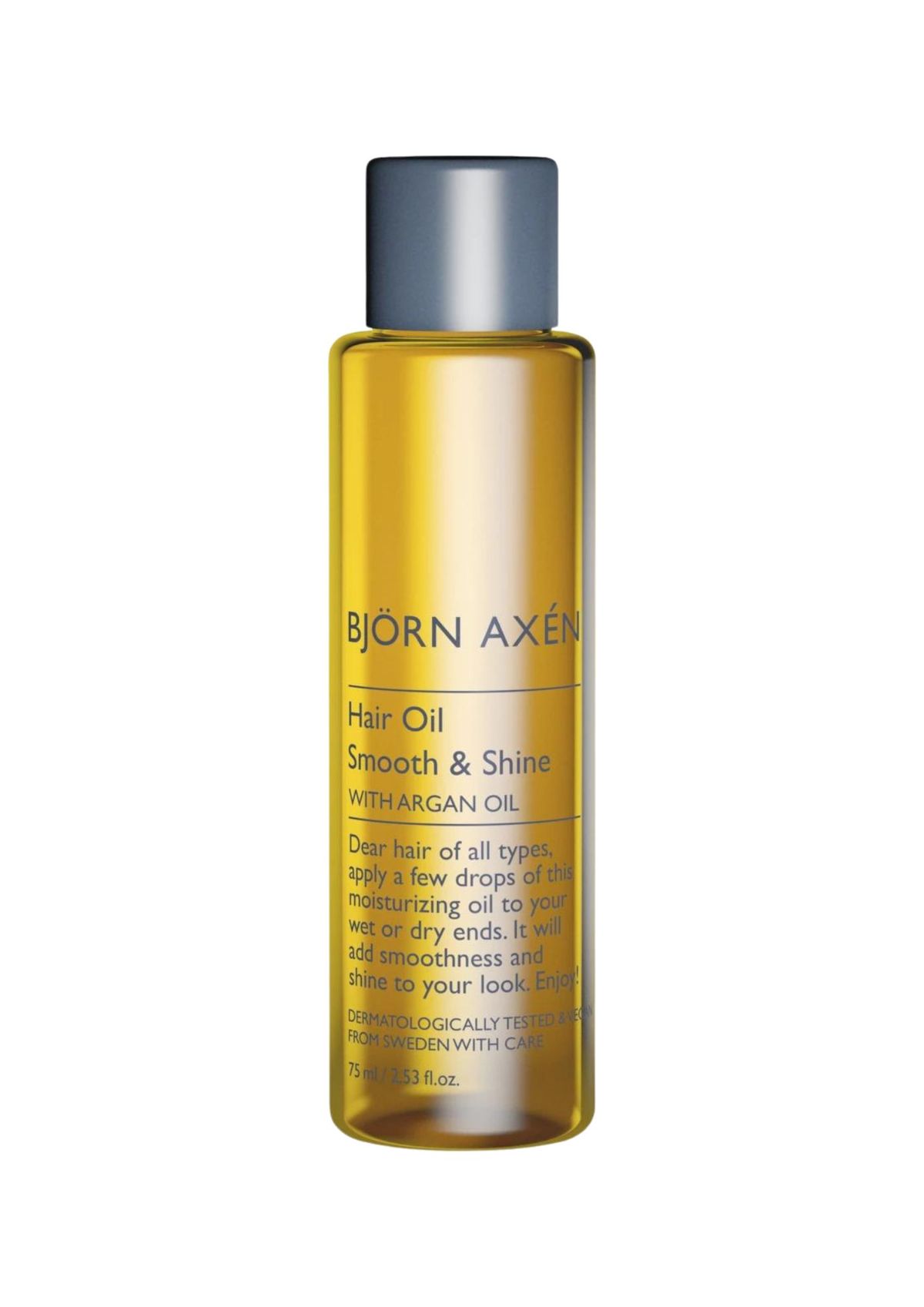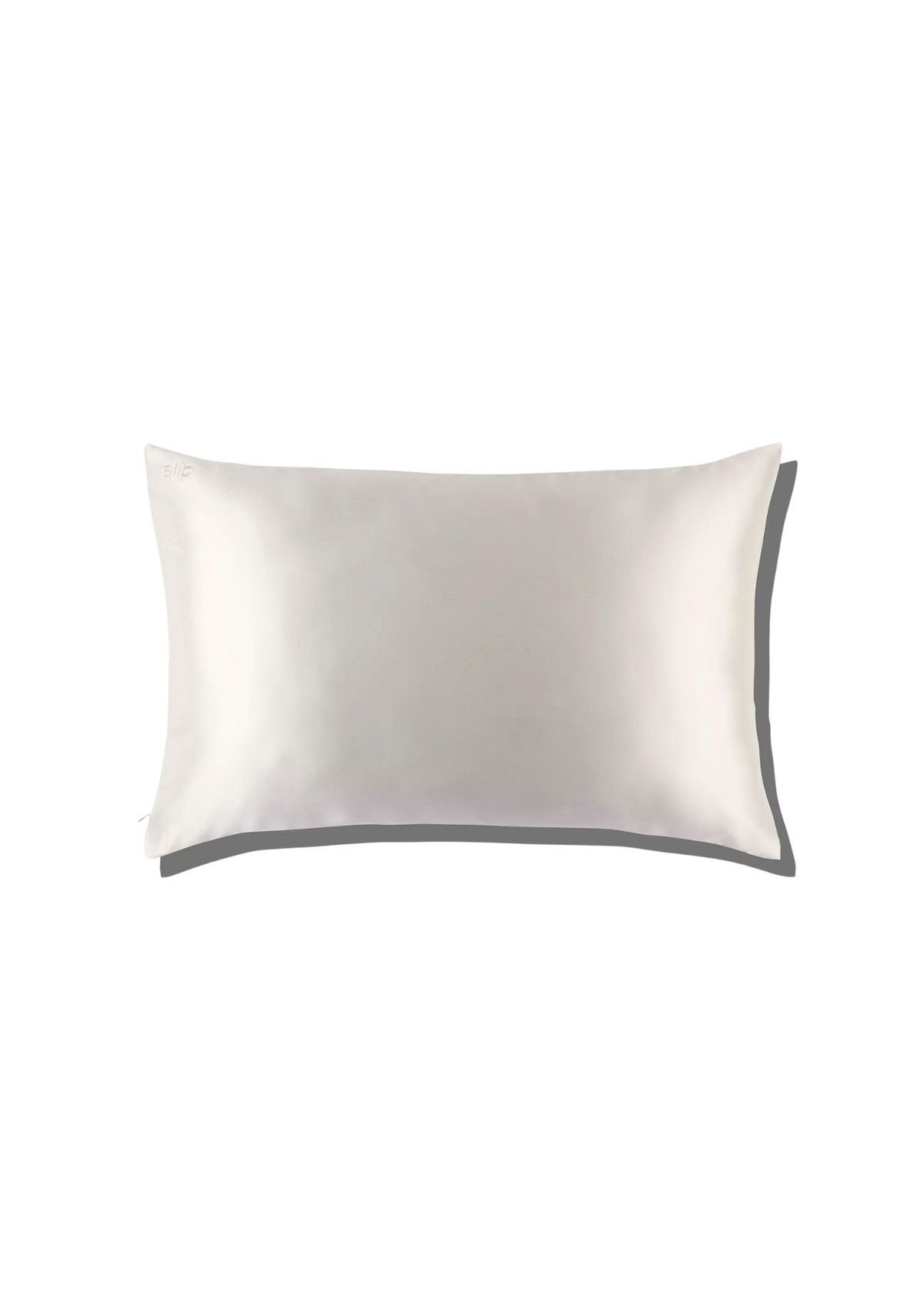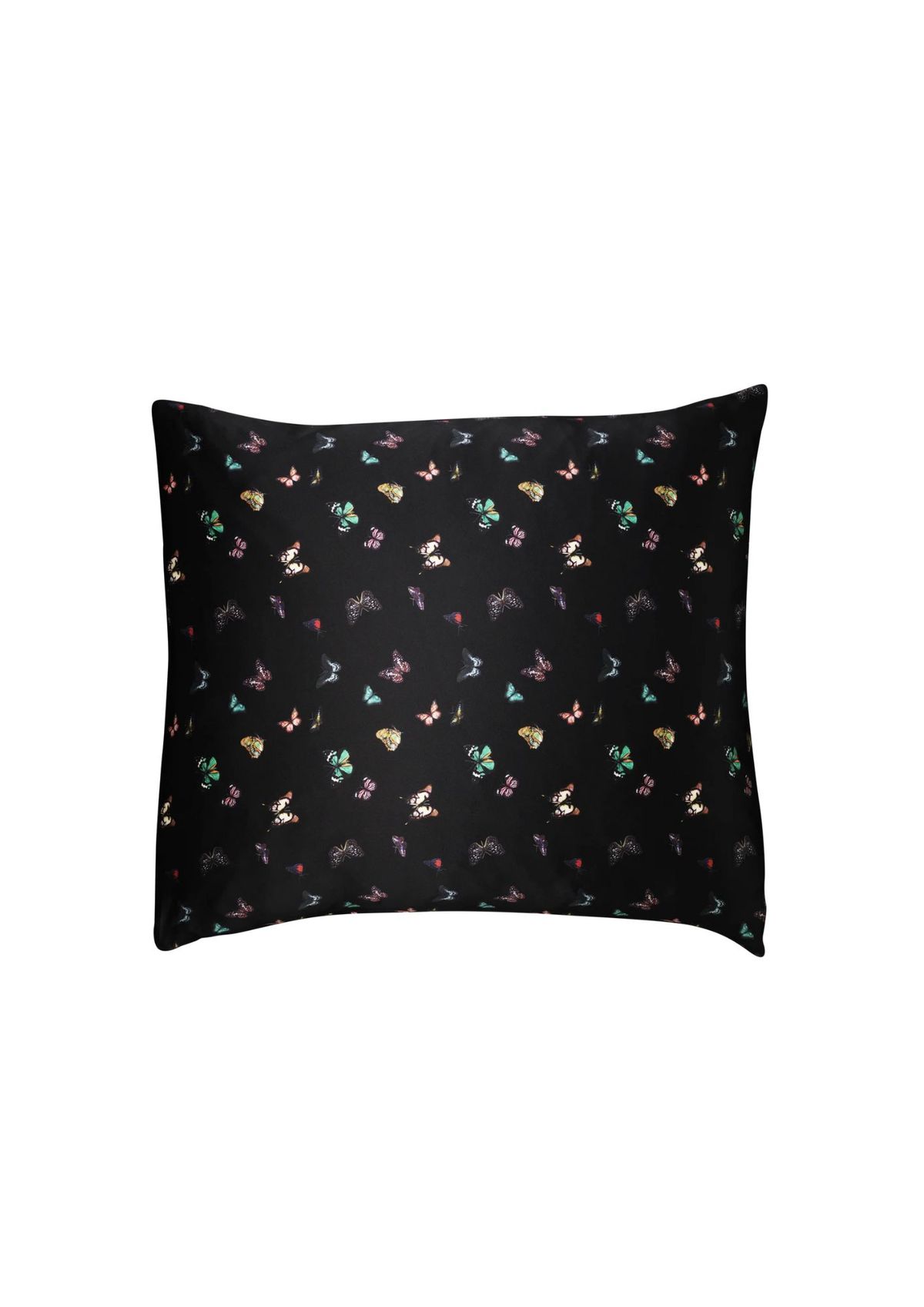Wondering if it's bad to sleep with wet hair? While sleeping with wet hair won't give you a cold, it can result in some serious split ends. We speak to the experts to separate the facts from the myths and bring you the ultimate nighttime routine for keeping your hair healthy
All products featured on Vogue are independently selected by our editors. However, when you buy something through our retail links, we may earn an affiliate commission.
For many, the idea of washing and blow-drying their hair can feel excessive, especially during the warmer months when low-maintenance beauty routines, speed, and fuss-free styles reign supreme.
There’s no denying the convenience of showering before bed and sleeping with damp hair. It’s even an attractive option for those looking to achieve effortless ‘Scandi waves,’ as wet hair braided overnight can easily create this Bohemian take on beach waves. But is your waterlogged hair paying the price? Below, everything you need to know about whether it really is bad to sleep with wet hair.
Does sleeping with wet hair cause breakage?
The easy answer is yes. Unfair as it might seem on your busy schedule, regularly sleeping with wet hair can impact the health of your strands and scalp.
"Wet hair is typically weaker, more fragile, and susceptible to damage from brushing," says Patrik Lernberger, celebrity hairstylist and co-founder of Lernberger Stafsing skincare and haircare. This idea is backed up by a GHD study, where scientists proved that hair can absorb up to 30 per cent of its weight in water.
What's going on behind the scenes goes a little like this: when wet, the cuticle (the outer layer of hair) opens, swells, and lifts, making the hair strand stretchier and more prone to breakage.
"This is especially true when you toss and turn on your pillow," Lernberger adds. "As well as making hair stretch, this action causes friction, which can result in split ends, frizz, and overall weaker hair."
Does sleeping with wet hair cause fungus?
You may have come across Instagram Reels or TikTok clips discussing the potential risks of sleeping with wet hair, including the unsettling possibility of mould or fungus forming in your locks. Unfortunately, going to bed with damp hair doesn’t just increase breakage – it can also put you at risk for developing scalp issues, such as itchy, acne-like bumps.
“The moist environment between the pillow and your wet hair provides an ideal environment for fungi, bacteria, and a yeast called Malassezia to thrive, so you can also increase the risk of dandruff,” warns Lernberger. Additionally, moisture from your hair can seep into your pillow, creating a damp surface that may harbour bacteria, dust mites, and mould, further contributing to scalp problems.
Although sleeping with wet hair won’t always lead to fungus or mould growth, the risk does increase with frequent exposure. To minimise potential problems, it’s best to dry your hair before bed whenever possible.
/Midsummer_hair_Vogue_Scandinavia_636a725f06/Midsummer_hair_Vogue_Scandinavia_636a725f06.jpg)
From Vogue Scandinavia's June-July 2024 issue. Wearing: Knitted bustier, Knitted bodysuit with rounded neckline, Knitted mini shorts. All Sportmax. Handcrafted earrings in bronze, €110, 22k gold ring, €88. Both Misho. Leather platform boots. Sportmax. Photo: Janelle Miller
Sleeping with wet hair in a bun isn't the answer...
In fact, pulling your soggy strands up into a tight bun could make matters worse.
"Tying your hair in a tight bun can apply pressure to the scalp and create tension on the hair shaft when lying down," Lernberger notes. The worst culprit, he says, "is an elastic hair band, which can lead to breakage over time, especially if your hair is already weak or prone to breakage. It may also cause tangles and knots, which puts additional stress on your strands."
All of which is opposite to the desired effect of sleep on your hair follicles. "Sleep is an important step in a successful hair health routine," says Lernberger. In the same way that skin relies on a good night's sleep for renewal, rest is vital for the creation of the protein keratin, as well as the release of the hormone melatonin, which has been shown to improve hair growth.
Nor is braiding them
Sleeping with wet hair in a braid isn’t inherently bad, but it does carry some risks. Damp hair is more fragile, and tight braiding can lead to breakage, split ends, and weakened strands over time. Additionally, the moisture trapped in the braid can create an environment that promotes bacterial or fungal growth on the scalp, potentially leading to dandruff or irritation.
But if you want to braid your damp hair overnight, there are ways to decrease the risks. Opt for a loose braid to reduce tension on your hair, and make sure your tresses are only slightly damp rather than soaking wet. Using a silk or satin pillowcase can also help reduce friction, providing extra protection for your hair while you sleep.
How to safely sleep with wet hair if you have to shower before bed
Occasionally there is no other option but to sleep with soaked strands, and you shouldn't feel guilty about that. But there are steps you can take to mitigate the damage:
- Apply a leave-in product to protect against snags
"First of all, moisturise your hair immediately after washing by applying a leave-in conditioner or a small amount of hair oil to the mid-lengths and ends," Lernberger advises. The Lernberger Stafsing BB Cream Leave-In Treatment is an all-in-one balm that prevents tangling and infuses strands with beneficial fatty acids and vitamins. While Björn Axén Hair Oil Smooth & Shine is especially good at coating thick, curly, and Afro hair with protective organic argan oil, sunflower oil, and vitamin E.
- Dry 70 per cent of your hair
If you really need to go to bed after showering, remember that damp hair isn't as prone to breakage as sopping wet strands. "Consider spending a bit of time using a microfibre towel or T-shirt to blot excess moisture from your hair before lying down," says Lernberger. "To minimise breakage, let your hair air dry before going to bed or use a hairdryer on a low setting if you are in a rush." Dry 70 per cent of your hair, focusing on the roots as that area is closest to your scalp and has the most contact with your pillowcase.
- Sleep with a silk pillowcase
"Silk is a softer fabric than cotton, so it will reduce friction and help prevent tangles and breakage," says Lernberger. Silk is also less absorbent, so it won't strip away the hair's natural oils. Good options include The Beauty Sleeper Silk Pillow and Slip Queen Silk Pillowcase.
